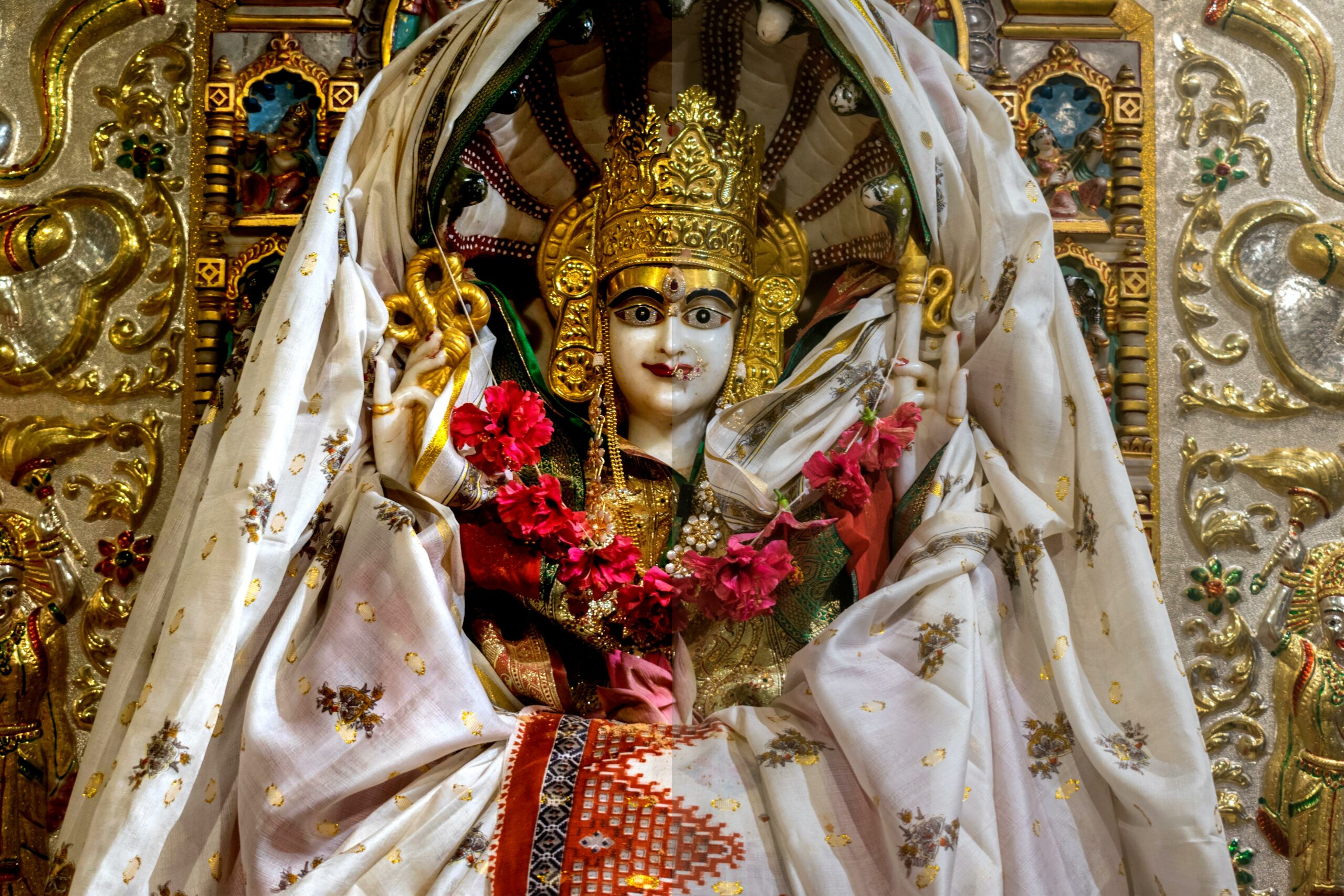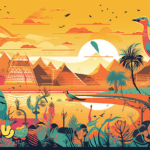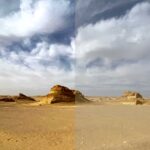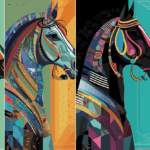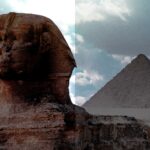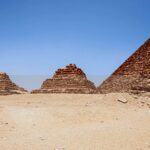Welcome to the enchanting world of ancient Egypt, where the boundless realm of gods and goddesses reigns supreme. In this captivating article, we embark on a mystical journey through time to uncover the revered figures that have fascinated generations: the famous Egyptian gods and goddesses. Brace yourself for an immersive experience where we unravel the intricate tales and explore the profound significance of these illustrious beings within Egyptian culture and mythology. Get ready to be captivated by the enigmatic realm of the ancient deities that have stood the test of time.
Exploring Famous Egyptian Gods and Goddesses
When we delve into the enigmatic realm of ancient Egyptian mythology, we encounter a plethora of awe-inspiring deities. These famous Egyptian gods and goddesses form an integral part of the rich historical tapestry that weaves together the cultural and religious beliefs of ancient Egypt. Let’s embark on a journey to unravel the stories and significance behind these revered beings.
Anubis: The Guardian of the Underworld
In the pantheon of ancient Egyptian gods and goddesses, few names evoke such mystery and fascination as Anubis. This deity, known as the god of the dead, presided over funerals, embalming, and tombs. With the head of a jackal, Anubis assumed the role of a guardian, guiding the souls of the departed through the treacherous afterlife. His unwavering commitment to his divine duty earned him a revered status in Egyptian culture, highlighting the profound role of death and the ritualistic practices surrounding it.
Did you know that Anubis was believed to have protected the deceased during the embalming process and ensured a smooth transition into the afterlife?
Bastet: The Feline Protector
Another captivating figure in Egyptian mythology is Bastet, a goddess with the head of a lioness or domestic cat. Revered as the protector of homes and the bringer of sensual pleasure, Bastet embodied both ferocity and gentleness. In ancient Egyptian culture, the domestic cat held great symbolic significance, and Bastet personified its divine qualities. She stood as a guardian against evil forces, warding off misfortune and bringing harmony to households.
Imagine having a powerful feline goddess by your side, offering protection and purring away the troubles of life.
Bes: The Humorous Guardian
While some gods and goddesses held immense power and influence, the Egyptian pantheon also included minor deities with unique roles. Bes, often depicted as a dwarf with a lion’s ears, was one such intriguing figure. Associated with protection, childbirth, and humor, Bes injected joy and mirth into Egyptian myths. Believed to have a comical and mischievous nature, he embodied the lighter side of life and offered protection against evil spirits.
In the realm of ancient Egypt, Bes would have been the life of the divine party, keeping everyone entertained and safe.
Geb: The God of Earth and Fertility
As the personification of the earth, Geb occupied a significant position in Egyptian mythology. This god symbolized the tangible and bountiful qualities of the land, enriching it with his divine power. With his association with fertility, Geb ensured the prosperity of crops and the abundance of agriculture. Egyptians viewed the earth as a nurturing entity, and Geb’s presence reinforced their connection to the land and its life-sustaining forces.
Imagine Geb as the guardian of the very ground beneath your feet, ensuring its fertility and providing sustenance for all.
Hathor: The Joyful Goddess
In the vibrant tapestry of Egyptian deities, Hathor radiated pure joy and delight. With her distinctive cow head, this goddess epitomized love, music, and happiness. Hathor was not only the protector of women and childbirth but also the patroness of the arts and festivities. Egyptians revered her as the bringer of joy and celebration, highlighting the importance of finding happiness in life’s smallest pleasures.
Picture Hathor as the ultimate party planner, orchestrating joyous occasions and filling the air with laughter and merriment.
Horus: The Sky and War Deity
Among the esteemed Egyptian gods and goddesses, Horus took on a lofty role as the god of the sky, kingship, and war. With his falcon head, Horus soared through the heavens, embodying the majesty and power of the skies. He symbolized the divine right of pharaohs to rule and protected them in times of war. Horus represented the indomitable spirit and courage that Egyptians sought in their leaders.
Imagine Horus as the celestial watchman, overseeing both the heavens and the earthly realm, ensuring justice and valor prevail.
Isis: The Powerful Mother Goddess
One cannot explore Egyptian mythology without encountering the mighty Isis, the goddess of magic, healing, and motherhood. Isis was revered as the epitome of femininity, embodying the essence of nurturing and compassion. She possessed immense magical prowess and served as a symbol of protection for the pharaohs and the people of Egypt. Through her healing powers and maternal wisdom, Isis played a crucial role in the lives of ancient Egyptians.
Isis, the divine mother figure, represents the incredible strength and unconditional love found in the embrace of a caring guardian.
Mut: The Vulture-Headed Sky Goddess
Associated with the sky and queenship, Mut was an intriguing and powerful goddess in Egyptian mythology. With her vulture head, she embodied the fierce guardianship and wisdom often associated with maternal figures. Mut patrolled the skies, keeping a watchful eye over the land and its rulers. In her role as a sky deity, she symbolized divine protection and linked the earthly and heavenly realms.
Imagine Mut soaring above, surveying the land and its inhabitants, a steadfast protector and queen of the heavens.
As we venture further into the mystical realms of ancient Egypt, we encounter an astonishing variety of gods and goddesses. From the falcon-headed Horus to the feline protector Bastet, each deity played a crucial role in Egyptian culture and mythology. These famous Egyptian gods and goddesses provide us with a glimpse into the beliefs, values, and traditions of this ancient civilization that captivated the world for over 3,000 years.
Through their fascinating stories and omnipresence in Egyptian society, these deities illuminate the deep-rooted spiritual connection between the ancient Egyptians and their divine pantheon.
In ancient Egypt, there are countless fascinating stories and legends that have been passed down through generations. Among these tales are the famous Egyptian myths, which hold a special place in the hearts of historians and mythology enthusiasts alike. These captivating stories offer a glimpse into the beliefs, culture, and values of the ancient Egyptians. If you’re eager to delve into the mysterious world of Egyptian mythology, allow yourself to be transported to another time and place by exploring these mesmerizing tales. Click here to uncover the enchanting realm of famous Egyptian myths: famous egyptian myths.
Top 10 Egyptian Gods and Goddesses
[youtube v=”e2cMS2SuWm0″]
Sobek: The Crocodile Deity
Sobek, a reptile demon with a crocodile head, was revered by ancient Egyptians for his ability to protect them from the dangers of the Nile. While some believed he was the actual creator of the river, he is primarily associated with fertility, military power, and pharaonic authority. Egyptians even mummified crocodiles in the hopes of receiving special care from Sobek in the afterlife. Despite his fierce reputation, Sobek is highly respected and considered an extension of both Horus and Ra. As the ancient Egyptians believed, “Not the calmest of gods, but certainly one of the most respected.”
Thoth: The Wise Mediator
Thoth, known as the “Wise Lord of the Sacred Word,” played a crucial role in Egyptian mythology. Originally a moon god, he later became recognized as the designer of the universe and the mediator between good and evil. Thoth kept Egyptians in check through education and is even credited with the invention of writing. Often depicted with either an Ibis or baboon head, Thoth’s wisdom and artistic inspiration continue to amaze the world. As Thoth himself proclaimed, “I contain all the wisdom in the universe.”
Geb: The God of Earth and Fertility
Geb, known as the “Father of Snakes,” had a booming laugh that was believed to cause earthquakes. Revered for his connection to vegetation along the Nile, Geb was the ruler over the Earth. He determined which souls ascended to the sky and which remained in the earth. While Geb’s sheer power could easily disrupt the ancient Egyptian world, he was also seen as patient and deliberate. In tribute to his influence, he left a lasting legacy as the god of earth, forever shaping Egyptian mythology. As he is depicted, “A lumbering giant, patient, deliberate, unmovable.”
Set: The Controversial God
Set, also known as Seth, held a complicated reputation in Egyptian mythology. He was notorious for dismembering his own brother, Osiris, but also complemented his son Horus’ rule over the arable land and became associated with dominating tactics. However, Set’s scheming ways and attempts to gain more power have often vilified him within his own family hierarchy. Yet, in the end, the Red Desert belonged to Set, solidifying his place among the gods. As Set warned, “I showed you mercy once, but I won’t make that mistake again.”
Horus: The Multi-Faceted Deity
Horus, a prominent figure in the Osiris myth, played various roles as a god of the sky, war, and hunting. Pharaohs were believed to be the human embodiment of Horus. Throughout history, Horus emerged in different forms, primarily regarded as a solar deity and the son of Isis and Osiris. The Great Sphinx, representing the Rising Sun, is sometimes considered to be an aspect of Horus. Horus’ influence was undeniable, as expressed by his follower, “I looked up to you, of course you did.”
Isis: The Eternal Mourner
Isis, a highly revered Egyptian goddess, spent eternity searching for the pieces of her dead husband, Osiris. Her relationship with Horus inspired imagery of Mary and baby Jesus in Christianity. Isis symbolized protection and maternal wisdom and played a pivotal role in the Pharaohs’ lives, representing the actual throne. The flooding of the Nile River was believed to be caused by Isis’ tears shed for her murdered brother and husband, Osiris. Alongside Hathor and Mut, Isis remains one of the most celebrated female deities in Egyptian mythology. As the Egyptians believed, “The Egyptian symbol of life, I meant it for your found. What good could that old charm have done?”
Anubis: The Guide of the Dead
Anubis, despite having few references in classical Egyptian mythology, served as the guide for souls in the afterlife. Often depicted with a jackal or wolf head, he determined whether the dead could reach the underworld. Anubis weighed their hearts against the truth, guiding them to their eternal fate. He is closely associated with the embalming and mummification process. As the explanation goes, “That’s a jackal’s head, he is Anubis, the Egyptian guardian and protector of the dead.”
Ra: The Defining God
Ra, the Sun deity, held a significant presence in Egyptian religion. Often depicted with the head of a falcon, he was considered the father of the gods and merged into the deity known as Amon-Ra. He represented the sun, the underworld, and possibly even the universe. As the ultimate defining presence of Egyptian gods and goddesses, Ra commanded the day-to-day lives of Egyptians, providing them with a sense of calm and personal meaning. As emphasized, “It’s not built on the scale of men; it’s built on the scale of gods.”
Osiris: The God of the Dead and Agriculture
Osiris, the beloved king and father of Horus, played a central role in Egyptian mythology. He met his death at the hands of his own brother, only to be reassembled by his wife, Isis, to give birth to Horus. Osiris became the god of the dead, guiding pharaohs after their demise through a journey of spells and challenges. He is also credited with ending cannibalism and introducing agriculture to the Egyptians. As Osiris’ legacy lives on, he assures, “All are welcome to the afterlife. This is my legacy.”
Amon-Ra: The Hidden Creator
Amon-Ra, also known as the Hidden One, held immense influence as the king of gods. He looked after the city of Thebes and was associated with creativity. Considered the creator of everything, including himself, Amon-Ra’s earthly extension was a moon rock, merged with the invisible deity associated with Zeus. He held a commanding presence in the lives of Egyptians, offering them calm and personal meaning. Amon-Ra remains the defining presence of Egyptian gods and goddesses. As highlighted, “He is and always will be the defining presence of Egyptian gods and goddesses.”
In conclusion, these top 10 Egyptian gods and goddesses serve as ancient guides, offering insight into the beliefs and traditions of the ancient Egyptians. They represented various aspects of life, from the protection of home and fertility to wisdom, motherhood, and the journey beyond death. Revered and respected, these deities played significant roles in shaping Egyptian mythology and continue to captivate the world with their enduring presence.
FAQ
Question 1
Who is Anubis and what is his role in Egyptian mythology?
Answer 1
Anubis is an important god in Egyptian mythology. He is often depicted as a jackal-headed deity and is associated with the dead, funerals, embalming, and tombs. Anubis plays a crucial role in the process of mummification and guiding souls through the afterlife.
Question 2
Tell me about Bastet and her significance in ancient Egyptian culture.
Answer 2
Bastet is a prominent goddess in Egyptian mythology. She is often portrayed as a lioness or a cat-headed deity and is known as the protector of the home and sensual pleasure. Bastet was also associated with fertility and played a role in safeguarding the pharaoh and their royal household.
Question 3
Who is Geb and what does he represent in Egyptian mythology?
Answer 3
Geb is an important god in ancient Egyptian mythology. He is regarded as the god of the earth and fertility. Geb is often depicted lying beneath the sky goddess Nut and is associated with the agricultural abundance and the natural world.
Question 4
What are the characteristics and associations of Hathor?
Answer 4
Hathor is a significant goddess in Egyptian mythology. She is depicted as a cow-headed deity and is associated with love, music, joy, and feminine beauty. Hathor played a role in celebrations, dance, and protecting the pharaoh. She was also believed to have healing and magical powers.
Question 5
Tell me about the god Horus and his importance in ancient Egyptian society.
Answer 5
Horus is a prominent god in Egyptian mythology. He is often represented as a falcon-headed deity and is associated with the sky, kingship, and war. Horus played a crucial role in Egyptian mythology as the protector of the pharaoh and the embodiment of divine kingship. He was also regarded as the avenger of his father Osiris and the embodiment of order and justice.
- Unlock Black Pepper’s Secrets: A Complete Guide - April 26, 2025
- Discover Long Black Pepper: Flavor & Health Benefits - April 25, 2025
- Shocking Twists: The Grownup Review: Unreliable Narration - April 25, 2025
